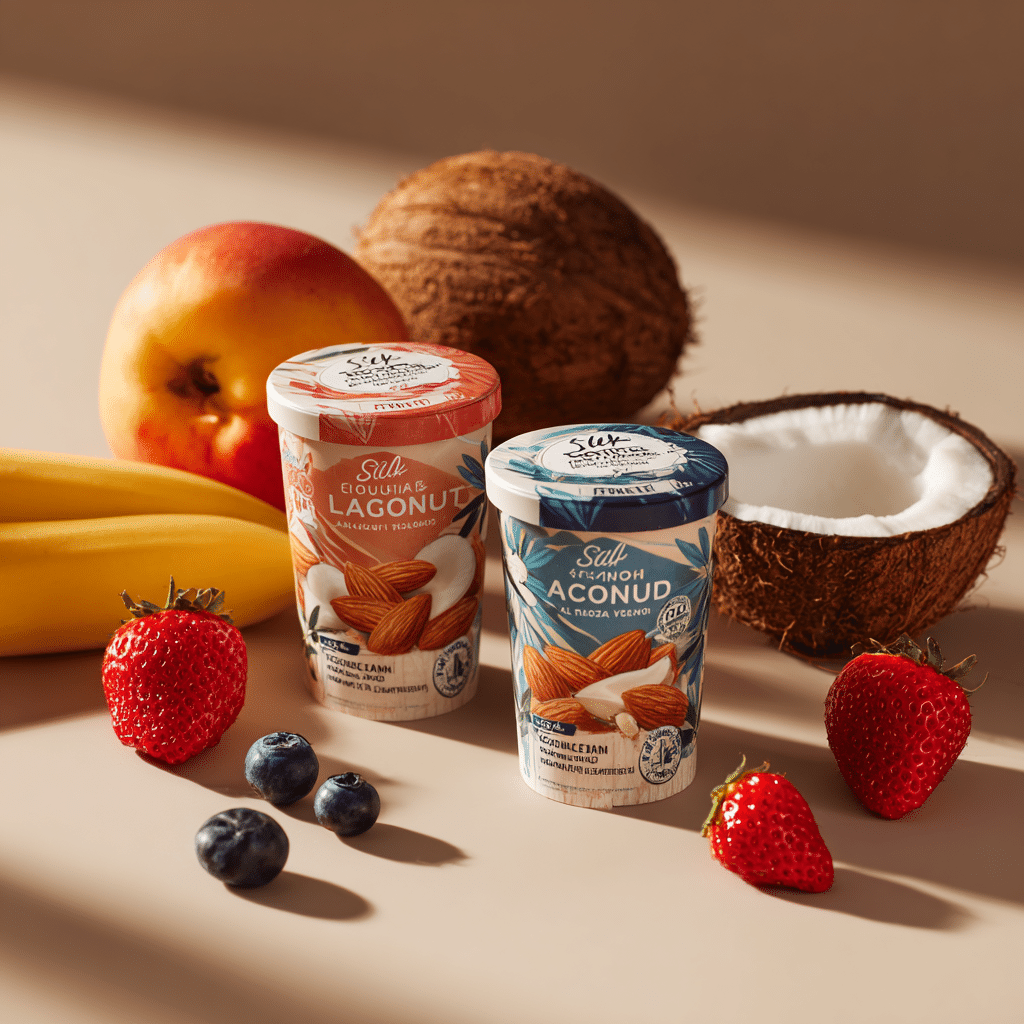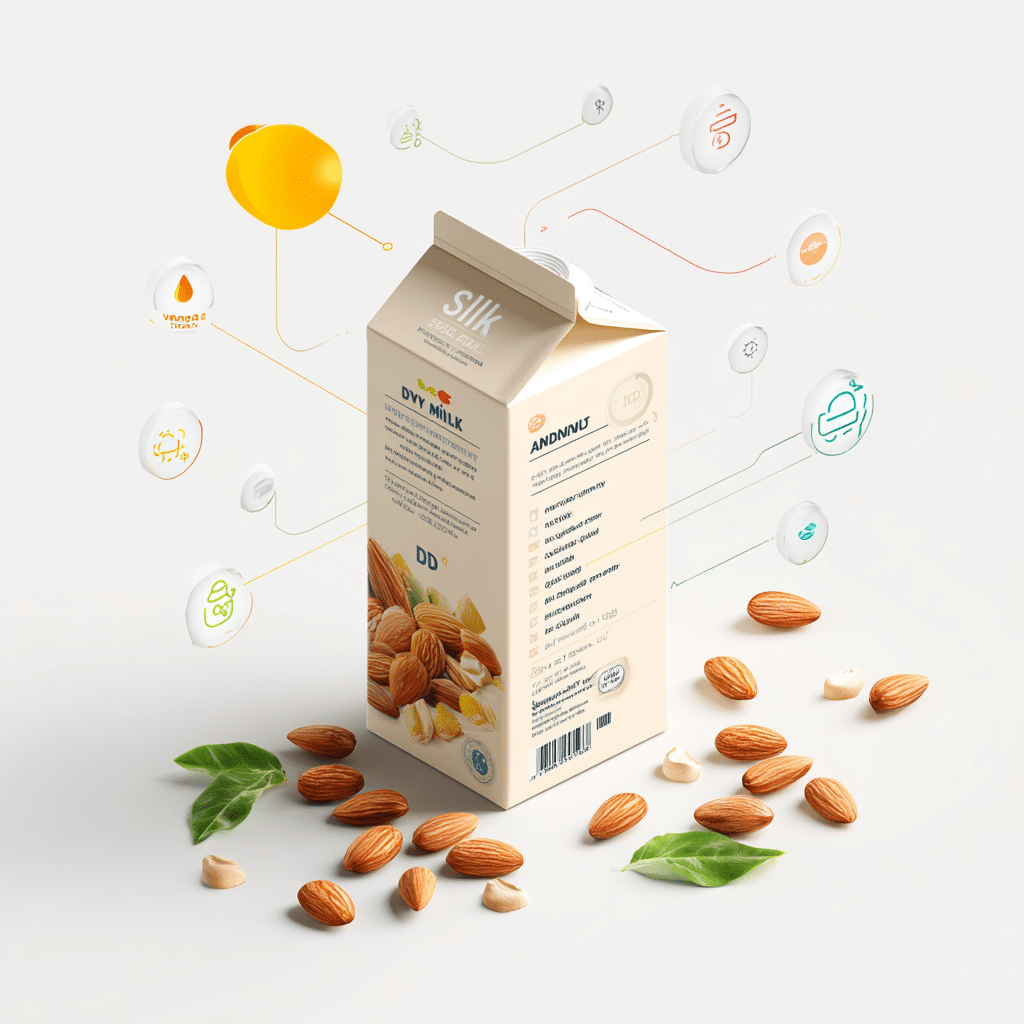If you’ve ever picked up a carton of Silk Almondmilk or eyed one of their yogurts and wondered, is Silk lactose free?, you’re not alone. More people are ditching dairy, but not everyone knows which plant-based products are truly lactose-free—and which might still cause discomfort. In this guide, we’re going straight to the label and the science to answer your biggest questions about Silk products, dairy sensitivity, and what’s safe to sip and spoon.
Table of Contents
Table of Contents
Why I Reached for Silk—and Didn’t Look Back
When Dairy Wasn’t Cutting It Anymore
I didn’t grow up reading labels. Like most people, I poured milk, ate yogurt, and moved on. But a few years ago, dairy started turning against me—bloating, cramping, and brain fog that didn’t make sense. A friend said, “Try Silk. It’s plant-based.” That’s when I really asked, is Silk lactose free?
I grabbed their almond milk first. No upset stomach. Then a coconut yogurt. Still fine. Over time, it wasn’t just about what I avoided—it was about what I gained: energy, clarity, and food that felt light but satisfying.
Why So Many People Ask If Silk Is Truly Lactose Free
Let’s be honest—brand names can be confusing. The word “milk” on a carton can make people assume it still contains dairy. And not all non-dairy products are automatically lactose-free either. So when someone asks, is Silk lactose free, they’re really asking if it’s safe for their digestion, their kids, or their morning coffee.
In the next sections, we’ll clear up what’s in Silk products, how they’re made, and why they’re a go-to choice for so many people with dairy sensitivity or lactose intolerance.
We’ll also answer whether Silk almondmilk is dairy-free, how it compares to other lactose-free options, and whether Silk yogurt fits in your fridge if you’re cutting dairy.
What’s in Silk and Why It’s Labeled That Way
Is Silk Actually Milk?
Let’s clear this up first: no, Silk is not actual milk—it’s a plant-based alternative. While it’s called “almondmilk” or “soymilk,” it contains no lactose and no dairy ingredients. The U.S. FDA allows these names when the product is clearly labeled as a substitute. Silk products are made from almonds, soybeans, oats, and coconuts—not from cow’s milk.
If you’re wondering is Silk lactose free, the answer is yes—across all their plant-based beverages. That includes almond, soy, cashew, oat, and coconut varieties. These are ideal choices for people who are lactose intolerant or simply want to avoid dairy altogether.
If you’re curious about how Silk Vanilla Almond Milk compares in taste and ingredients, you’ll want to read our deep dive on what’s really inside their popular vanilla version.
Ingredients That Matter (And Ones That Don’t)
Most Silk drinks are not just lactose free—they’re also free of dairy, gluten, and carrageenan. They’re fortified with calcium, vitamin D, and B12, which are nutrients commonly found in cow’s milk.
Here’s a typical breakdown of what’s inside a cup of Silk Almondmilk:
| Ingredient | Function |
|---|---|
| Filtered Water | Base liquid |
| Almonds | Main plant ingredient |
| Calcium Carbonate | Calcium fortification |
| Vitamin D2, B12 | Nutritional support |
These ingredients support the claim that Silk is not only dairy-free but also built to replace the nutrition people typically expect from milk. And for those asking is Silk lactose free, the consistent answer across the brand is yes—with no hidden dairy-derived ingredients.
To understand how Silk stacks up nutritionally, check out our full guide on almond milk nutrition and what to expect from daily use.
Silk Products and Lactose Intolerance – What to Know
Is Almond Milk OK for Lactose Intolerance?
Yes, almond milk—including Silk Almondmilk—is one of the most popular choices for people with lactose intolerance. It contains no lactose and is made entirely from plant ingredients. Since lactose intolerance affects the body’s ability to digest milk sugar, any product made without dairy—like Silk almond milk—is completely safe.
The reason so many people ask is Silk lactose free is because the packaging often says “milk,” which can cause confusion. But rest assured: Silk’s almond, soy, and oat drinks are all 100% lactose free.
What About Silk Yogurt and Other Products?

Silk’s plant-based yogurts are also lactose free. Whether it’s made from soy, almond, or coconut, Silk yogurt is completely dairy-free and doesn’t contain lactose. It’s a great swap if you’ve had to give up traditional yogurt because of digestive issues or dairy allergies.
One thing to watch: not all plant-based brands avoid dairy additives, but Silk keeps it clean. Still, checking labels is a good habit—especially if you’re choosing flavors or blends with extra ingredients.
So to answer the question clearly: yes, all Silk yogurt products are lactose free. And they’re suitable for vegans, people with lactose intolerance, and anyone looking to cut back on dairy.
Frequently Asked Questions : Is Silk Lactose Free
Is Silk Almond dairy free?
Yes, Silk Almondmilk is completely dairy free. It contains no cow’s milk, no lactose, and no dairy-derived ingredients. It’s made from almonds, water, and added nutrients like calcium and vitamin D.
Is almond milk OK for lactose intolerance?
Absolutely. Almond milk—especially from brands like Silk—is one of the best alternatives for people with lactose intolerance. It’s naturally free of lactose and gentler on digestion.
Is Silk milk actually milk?
Silk uses the word “milk” to describe plant-based beverages like almondmilk and soymilk. These drinks are not actual dairy milk but are labeled for clarity and comparison. Legally and nutritionally, they’re non-dairy alternatives.
For a closer look at how plant-based milk like Silk stacks up against dairy, don’t miss our comparison of almond milk vs dairy milk for everyday health.
Is all Silk yogurt dairy free?
Yes. All Silk yogurt products are 100% dairy free and lactose free. Whether made from almond, coconut, or soy, they contain no animal products or dairy.
Final Thoughts About Is Silk Lactose Free
So, is Silk lactose free? Yes—completely. Whether you’re sipping almondmilk, stirring coconut yogurt, or cooking with soy, Silk offers a safe, dairy-free, lactose-free choice. For people with sensitivities, allergies, or dietary goals, it’s a smart and simple way to enjoy creamy, satisfying foods without the side effects of dairy.
Want to discover more plant-based swaps that taste great and feel better? Follow our Pinterest page for everyday dairy-free inspiration or chat with us on Facebook where we share tips, favorites, and real-food advice.
According to the official Silk FAQ page, all Silk products are completely lactose-free—making them safe for anyone with dairy sensitivities or lactose intolerance.

